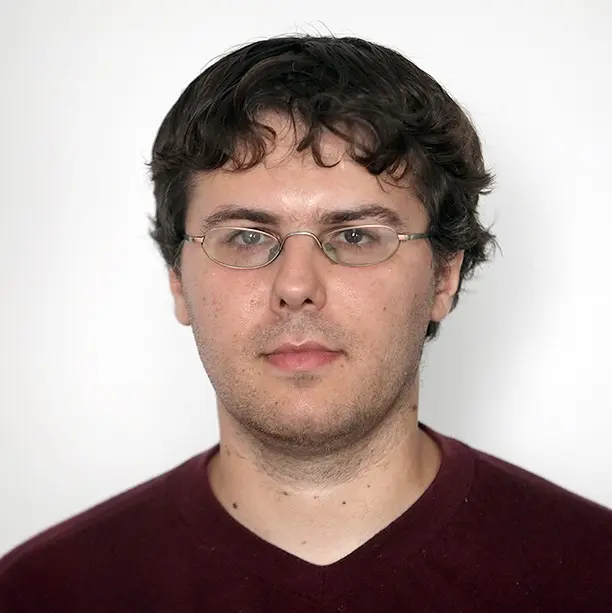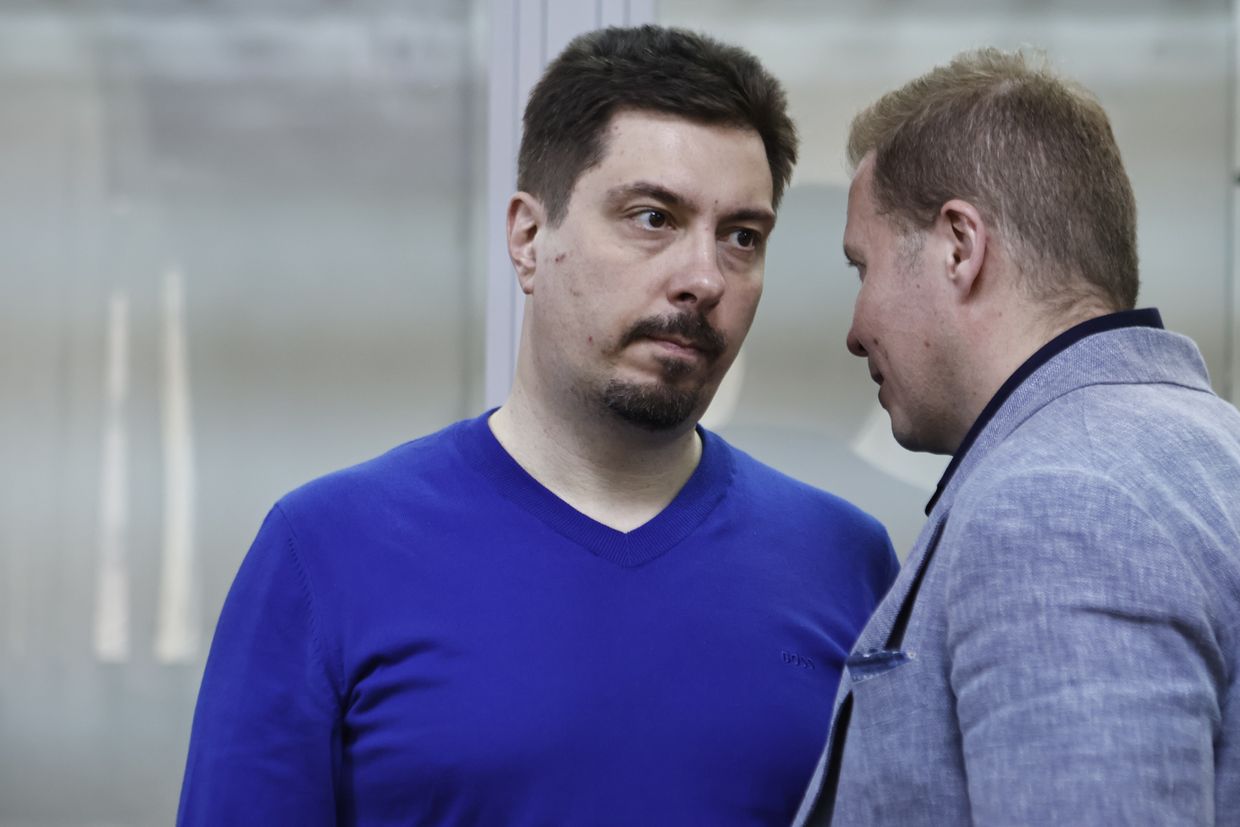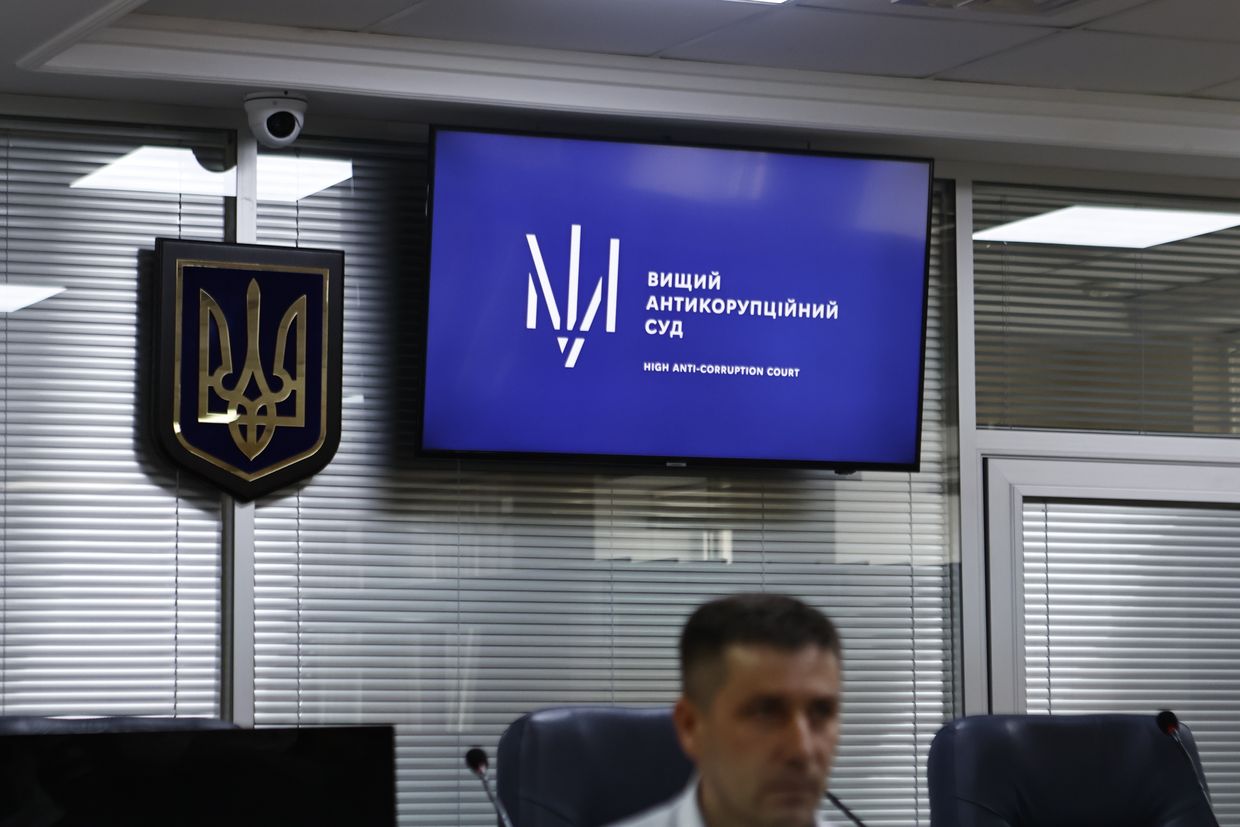In late 2023, Ukraine finally re-launched the process of vetting judges as part of a long anticipated judicial reform – a key condition for Ukraine's accession to the European Union.
Four months later, the results are mixed.
On the one hand, the High Qualification Commission, a top judicial body, has approved firing almost half of the judges that the Public Integrity Council, the judiciary's civil society watchdog, vetoed. Yet, the other half, deemed unethical by the Public Integrity Council, remains.
Ukraine's most odious judges – Pavlo Vovk and Vsevolod Kniaziev – still keep their jobs. Both of them were previously charged with several crimes by the state.
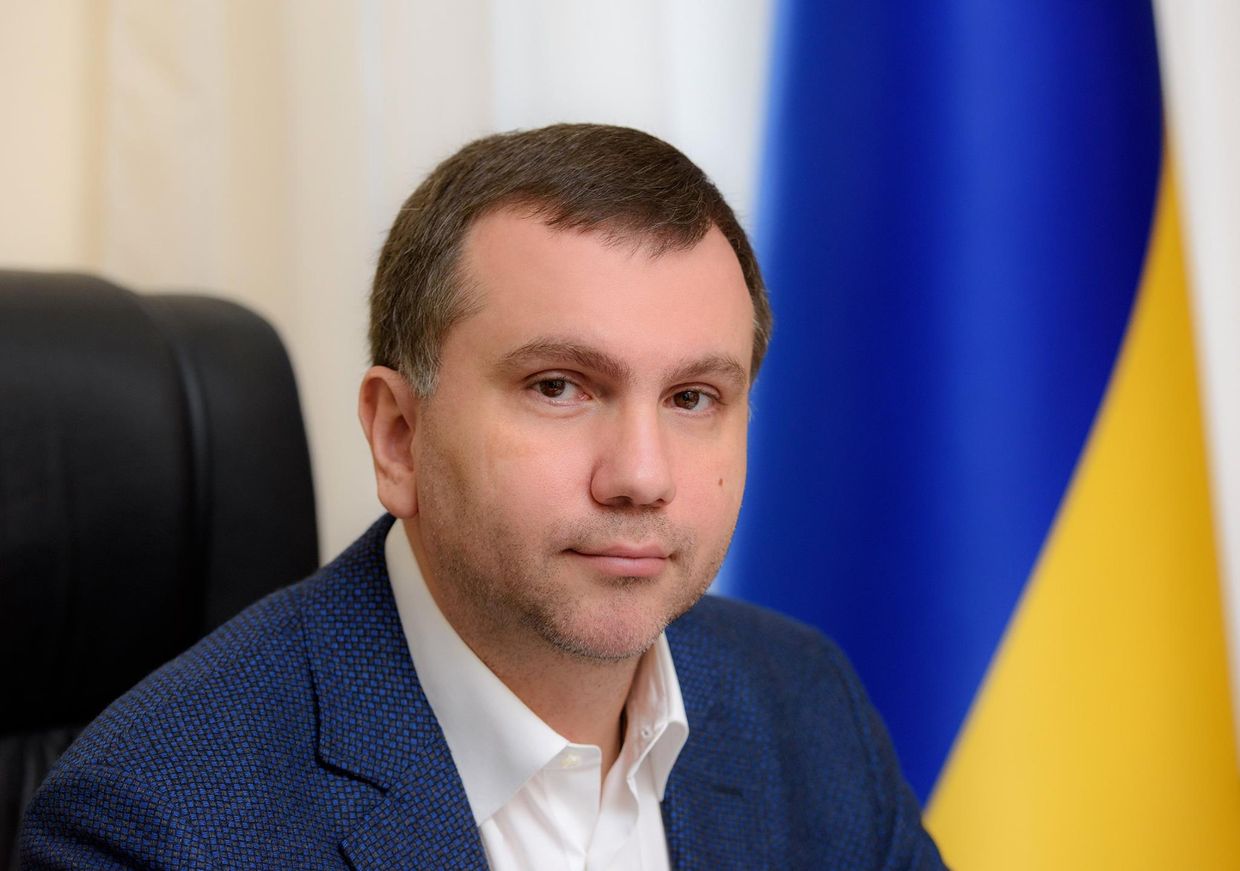
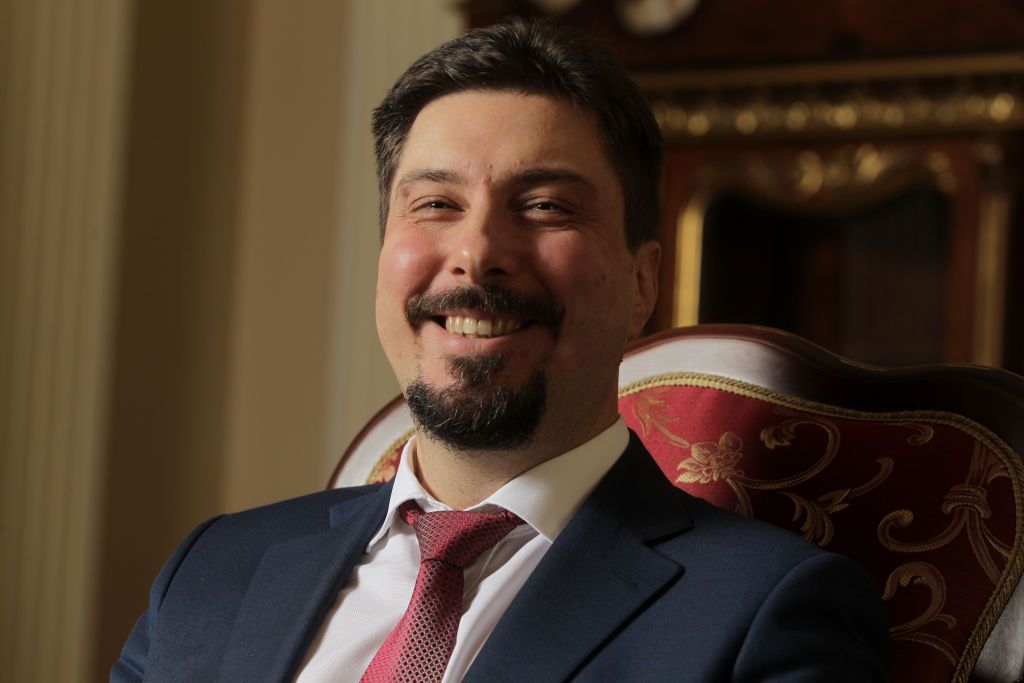
Another top judicial body, the High Council of Justice, has not made any progress at all, judicial experts and activists say.
The High Council of Justice makes final decisions on judicial appointments and dismissals, after the Qualification Commission’s suggestions.
So far, the council has failed to approve the dismissal of a single judge under the vetting procedure.
The council has also routinely refused to open disciplinary cases and punish judges that were accused of a variety of misdemeanors.
"As of now, the High Council of Justice has not met expectations," Nika Kreidenkova, an expert at legal watchdog Dejure and a co-head of the Public Integrity Council, told the Kyiv Independent.
Upsides and downsides of vetting
A key pillar of Ukraine's judicial reform is the qualification assessment, or vetting, of judges, which is carried out by the High Qualification Commission.
The vetting of judges was suspended in 2019, when the previous High Qualification Commission was dissolved by President Volodymyr Zelensky as part of the reform.
A new High Qualification Commission was appointed in June 2023, and the vetting resumed in November.

Under the vetting procedure, the Public Integrity Council approves or vetoes judges based on their compliance with ethics and integrity standards. The High Qualification Commission can either uphold or override a veto with a two-thirds majority.
So far, the High Qualification Commission has overturned 23 vetoes imposed by the Public Integrity Council on judges and upheld 20.
Kreidenkova from Dejure argued that the current High Qualification Commission is performing better than the previous one.
The commission is more willing to cooperate with the Public Integrity Council, coordinate the vetting of judges with the council and take its opinions into account, Kreidenkova told the Kyiv Independent.
The High Qualification Commission is also more open: it broadcasts its meetings and publishes its decisions on individual judges, Kreidenkova added.
One of the upsides is that the commission supported firing several judges accused of issuing unlawful rulings against protesters during the 2013-2014 EuroMaidan Revolution, according to Kreidenkova and Tetiana Chyzhyk, a judicial expert at anti-corruption watchdog AutoMaidan.
These include Olena Izovitova-Vakim, Oksana Myroshnychenko, and Andriy Klyuchnyk.
Vitaly Tytych, a former head of the Public Integrity Council, disagreed with Kreidenkova's assessment of the High Qualification Commission.
He said that the High Qualification Commission had no right to greenlight judges if they were correctly vetoed by the Public Integrity Council based on the Bangalore Principles of Judicial Conduct.
"If a conclusion is correct, the Public Integrity Council must defend its veto consistently," Tytych said. "And if the Public Integrity Council made a mistake, it must admit it."
But if the High Qualification Commission approves some judges whose behavior is unethical and vetoes others, such an approach is "arbitrary and subjective" and creates unequal conditions for different judges, he added.
"There will be doubts on whether such decisions are based on the law," he said.
Tytych, a fierce critic of Ukraine’s courts, also criticized the current High Qualification Commission for failing to revisit the assessments made by the previous commission.
The Ukrainian authorities recognized in 2019 that the previous commission's decisions led to the failure of judicial reform and had to re-launch the commission, Tytych argued. That is why he believes these decisions must be reconsidered.
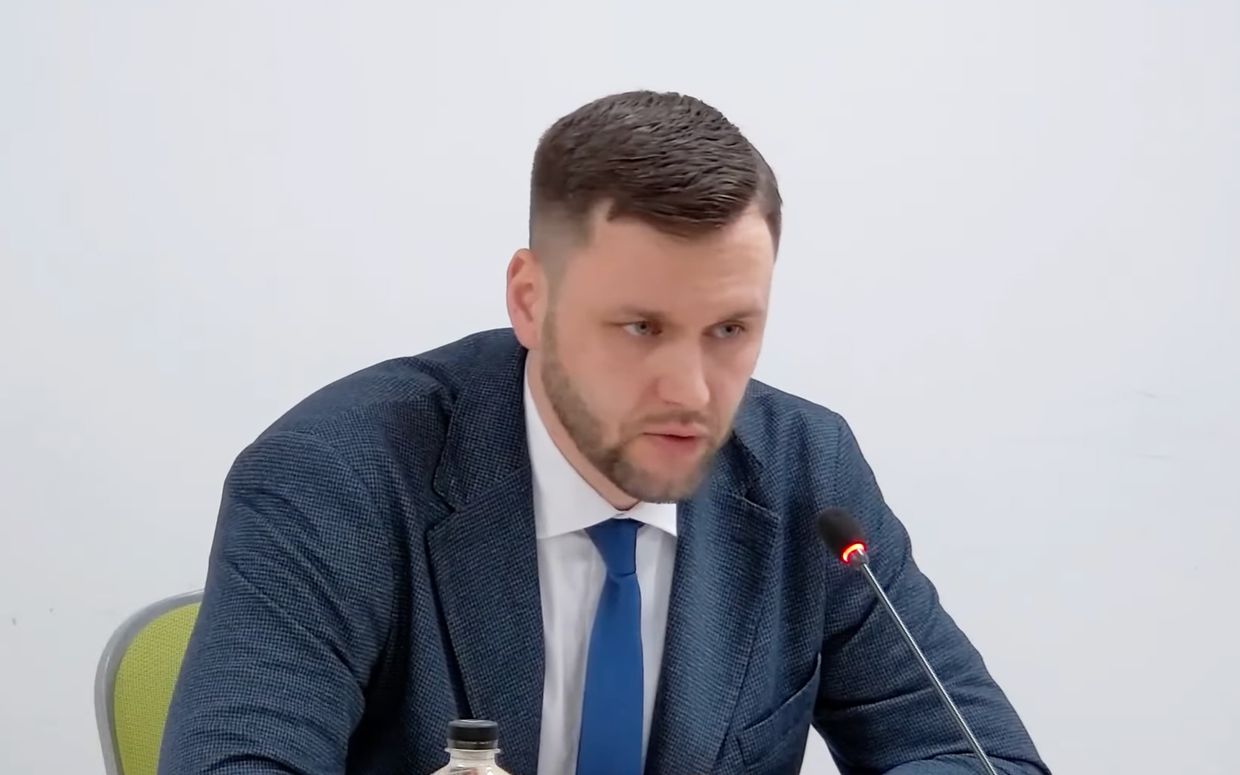
Drunk driving cases
Despite praising some of the commission's actions, Kreidenkova and Chyzhyk criticized it for refusing to fire judges who helped drunk drivers escape punishment.
"The commission is not reacting (to their violations)." Kreidenkova told the Kyiv Independent.
Chyzhyk told the Kyiv Independent that drunk driving cases may be very profitable for judges since some of them take bribes for closing such cases.
Ruslan Sydorovych, a deputy head of the High Qualification Commission, defended the commission's decisions.
He told the Kyiv Independent that it had to be careful because some of the previous decisions on dismissals were canceled by the High Council of Justice and the Supreme Court as unfounded.
"It's not a battle against windmills but work for a concrete result," he said. "Are we aiming to get a conveyor belt of decisions that will be then canceled one by one?"
Some of the judges have already disputed the decisions on their dismissals with the Supreme Court, and more are expected to do so.
"This trend is concerning," Kreidenkova said. "The Supreme Court may try to save (tainted judges) from dismissal."
She argued that because the previous High Qualification Commission failed to do its job, some tainted judges who did not meet integrity standards got into the Supreme Court, and now these judges may undermine judicial reform.
One of the judges appointed by the previous commission to the Supreme Court, Vsevolod Kniaziev, became the court’s chairman in 2021. In May 2023 he was charged with accepting a $2.7 million bribe.
Kreidenkova said that, if they do try to destroy the reform, the Supreme Court itself would have to be reformed again.
Judicial experts and anti-corruption activists have also accused the High Qualification Commission of providing insufficient motivation, or a written response, for its decisions on judges.
Syrodovych denied the accusation and argued that, according to a Supreme Court ruling, such issues were within the commission's discretion. He also said that the law does not allow divulging secret deliberations of the commission during its sessions.
One of the judges vetoed by the Public Integrity Council and green-lighted by the High Qualification Commission is Alina Honcharova. She has missed deadlines for about 100 drunk driving cases and closed them after the expiry of the statute of limitations.
Sydorovych admitted that the number of drunk driving cases in which she missed deadlines was "inappropriately high" and added that the decision on Honcharova "was not a simple one."
He attributed the high percentage of closed cases to lawyers' efforts to delay them. Sydorovych admitted that judges have legal tools to rein in such lawyers but said that they are usually "afraid of doing that."
He also argued that it had been more forgivable for judges to miss deadlines before 2021, when the statute of limitations was three months for drunk driving cases. Since 2021, the statute of limitations for such cases has been a year.
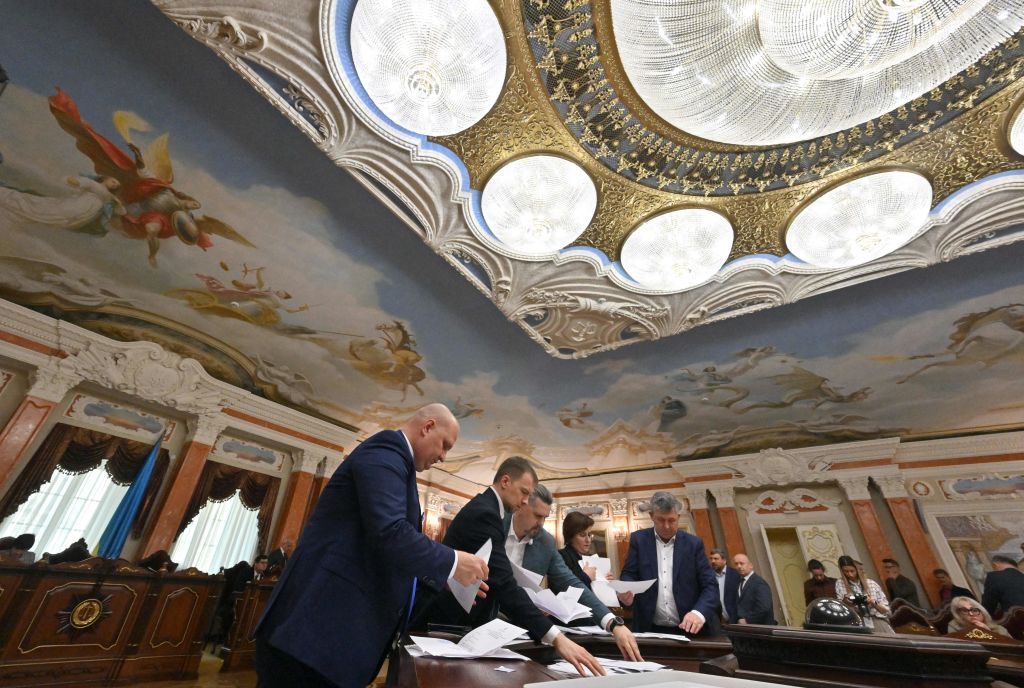
Another judge approved by the High Qualification Commission, Ada Pedenko, has closed cases against 21 drunk drivers due to the statute of limitations.
In 2021, she exempted a person from criminal liability for drunk driving despite the legal ban on such an exemption, according to the Public Integrity Council. Sydorovych argued that Pedenko could have made an honest mistake in this case rather than intentionally doing something illegal.
In 2013, Pedenko also fined an AutoMaidan protester based on fake evidence, the Public Integrity Council said.
The High Qualification Commission has also rejected the Public Integrity Council's veto on Judge Larysa Radutska.
In 2014, she considered a case against a protester who went to ex-President Viktor Yanukovych's Mezhyhirya residence as part of a rally during the EuroMaidan Revolution, according to the Public Integrity Council. Radutska deprived the protester of her driving license for four months for allegedly failing to stop when requested by a police officer.
Sydorovych argued that, according to court decisions, the person punished did not have anything to do with EuroMaidan protesters. However, AutoMaidan denies this claim, saying that she was indeed a protester.
Radutska also violated asset declaration rules, the Public Integrity Council said. She denied the accusations.
Vovk saga
While there are questions about the High Qualification Commission’s ability to spearhead the cleanup of Ukraine’s tainted courts, the main test lies ahead – whether the most unscrupulous judges will face the long delayed justice.
Among them one stands out – Pavlo Vovk.
He has become a symbol of injustice, lawlessness, and impunity in Ukraine. In 2019-2020 he and other judges of the Kyiv District Administrative Court were charged with usurpation of power, obstruction of justice, organized crime, and abuse of authority.
In audio recordings published by the National Anti-Corruption Bureau of Ukraine (NABU), Vovk is heard discussing numerous corrupt deals and giving illegal orders.
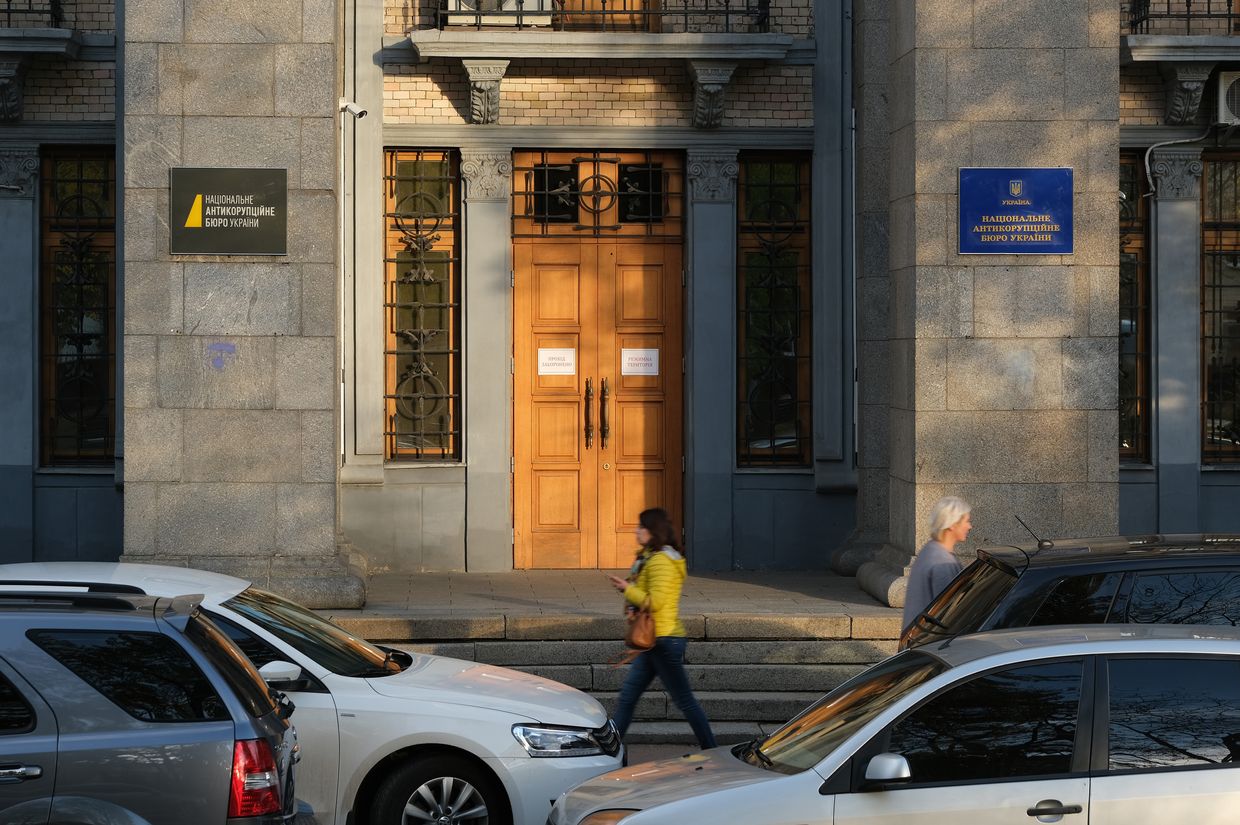
The criminal case against Vovk and other judges of his court was sent to the High Anti-Corruption Court in June 2022.
In December 2022, the U.S. sanctioned Vovk “for soliciting bribes in return for interfering in judicial and other public processes.”
The same month, President Volodymyr Zelensky signed a bill to liquidate Vovk’s Kyiv District Administrative Court.
Despite the liquidation of the court, Vovk still remains a judge. He keeps receiving a salary financed by Ukrainian taxpayers and has a legal right to be transferred to another court.
So far, the only decision that the High Qualification Commission has made on Vovk was on his eligibility for a Supreme Court job.
In 2017, Vovk attempted to run for a Supreme Court job but voluntarily withdrew his candidacy amid corruption scandals. However, Vovk filed a lawsuit to require the High Qualification Commission to vet him as part of the Supreme Court contest.
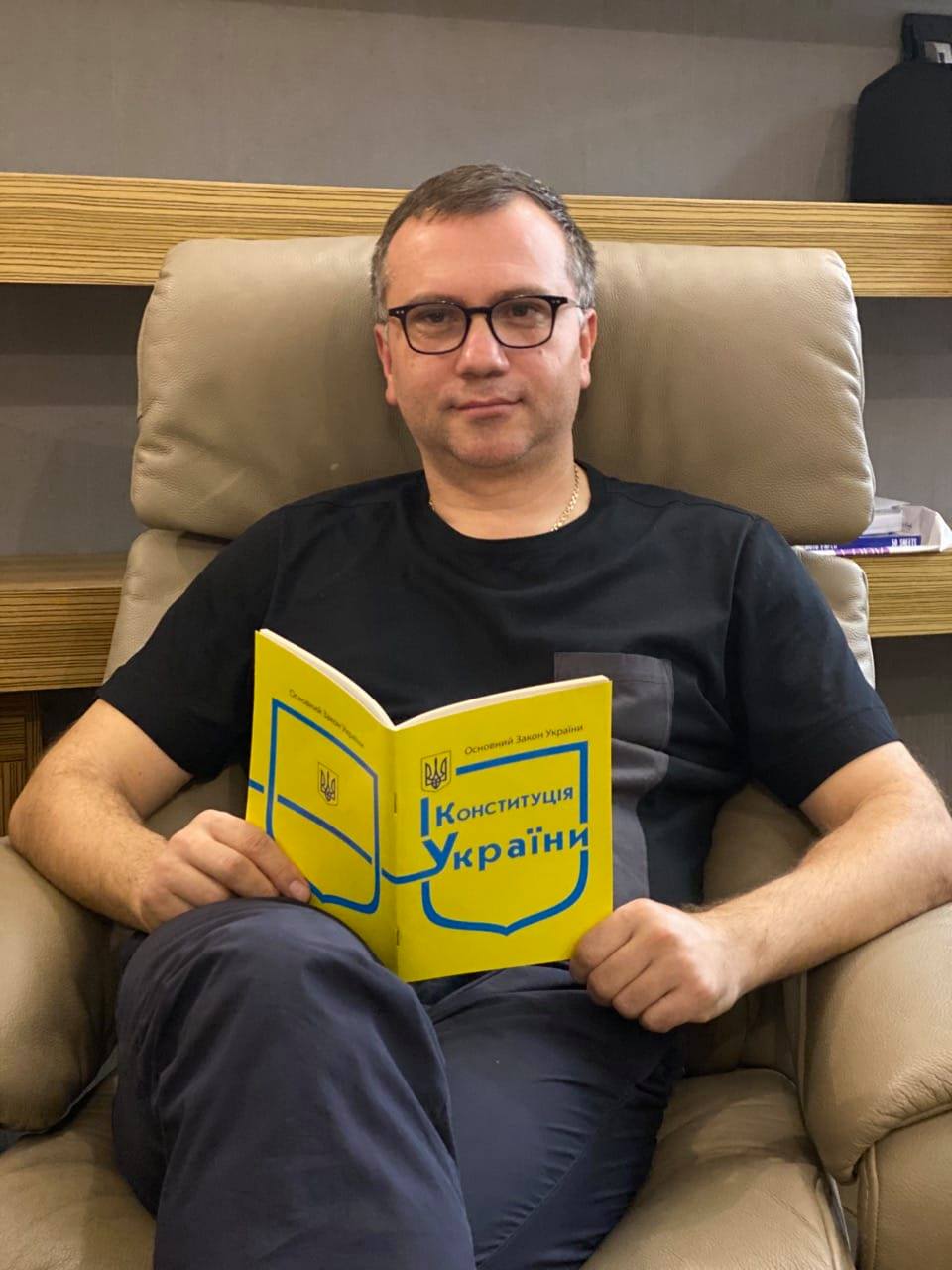
In 2021, the Supreme Court upheld Vovk's lawsuit.
On Feb. 12, 2024, Vovk did not show up for vetting at the High Qualification Commission, and it rejected his candidacy for the Supreme Court due to his absence.
However, he has not been fired and still remains a judge.
Sydorovych said that the commission had not had the opportunity to vet Vovk yet because he has yet to pass a test that assesses the judge’s knowledge of the law. So far, only judges who had passed legal tests during the previous commission's stint have been vetted.
There were no tests between 2019, when the previous commission was dissolved, and 2023. That is why the new commission must adopt new legal knowledge tests, and only then Vovk can be tested, Sydorovych said.
He said that the tests are being currently prepared by legal scholars and must be validated by the commission in March.
Local courts
Apart from vetting incumbent judges, the High Qualification Commission has also launched a procedure to hire new judges for local courts.
Chyzhyk argued that there is no rigorous vetting of candidates during the procedure, and many are just approved automatically regardless of their background.
Out of 432 candidates, the commission has already recommended appointing 228 judges and rejected just 10, Chyzhyk said. Other candidates are still being considered.
Sydorovych responded that he had not seen candidates for local courts with evidence of violations of integrity and ethical standards. He also said that Ukrainian law allows the commission to assess judges' integrity but does not let the commission interview candidates on compliance with professional standards.
High Council of Justice
Out of the two main judicial bodies, the High Council of Justice, has faced more criticism than the High Qualification Commission.
The first recommendations on judges' dismissals were sent by the High Qualification Commission to the High Council of Justice in November. So far, the High Council of Justice has not approved a single ousting.
In its response to the Kyiv Independent, the council did not comment on why it had not considered any of the recommendations sent by the new High Qualification Commission.
The council said that it had considered three recommendations on dismissals sent by the old High Qualification Commission, which was dissolved in 2019. Specifically, the High Council of Justice approved the dismissal of one judge and rejected the firing of two judges in 2023.
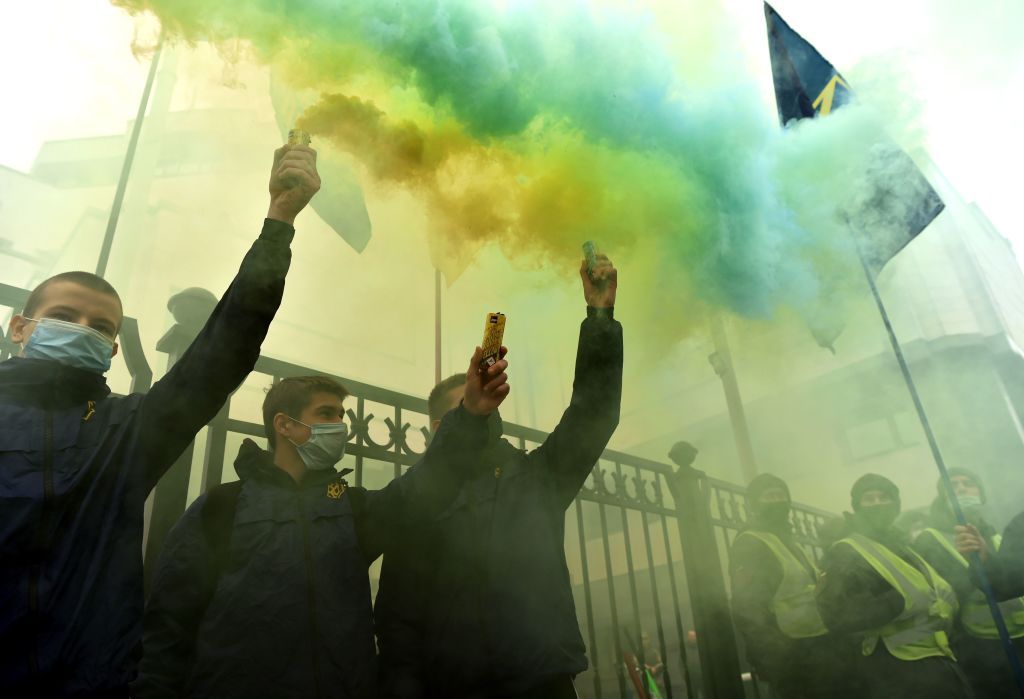
In many cases, the council is also refusing to open disciplinary cases against judges for alleged violations. Chyzhyk argued that such refusals are unmotivated.
In December and January, the High Council of Justice refused to open 692 disciplinary cases against judges, according to Dejure.
Even after disciplinary cases are opened, the council rarely decides to fire judges, according to Chyzhyk. She said that most often the council punishes judges just by reprimanding them.
The High Council of Justice told the Kyiv Independent that it had punished 26 judges in 2024. Specifically, the council issued warnings against nine judges, reprimanded 14 judges, and fired three judges.
Among others, the High Council of Justice has so far failed to take any action against Vovk.
Chyzhyk said that many disciplinary cases have been initiated against Vovk but the council has approved opening only one.
That case has not seen much progress either: it was suspended, with council members arguing that it can only be considered after a court determines whether Vovk is guilty.
Dejure has also criticized the High Council of Justice for dragging its feet on considering a disciplinary case against Vsevolod Kniaziev, former chairman of the Supreme Court.
He has been fired as chairman of the court but formally remains a judge.
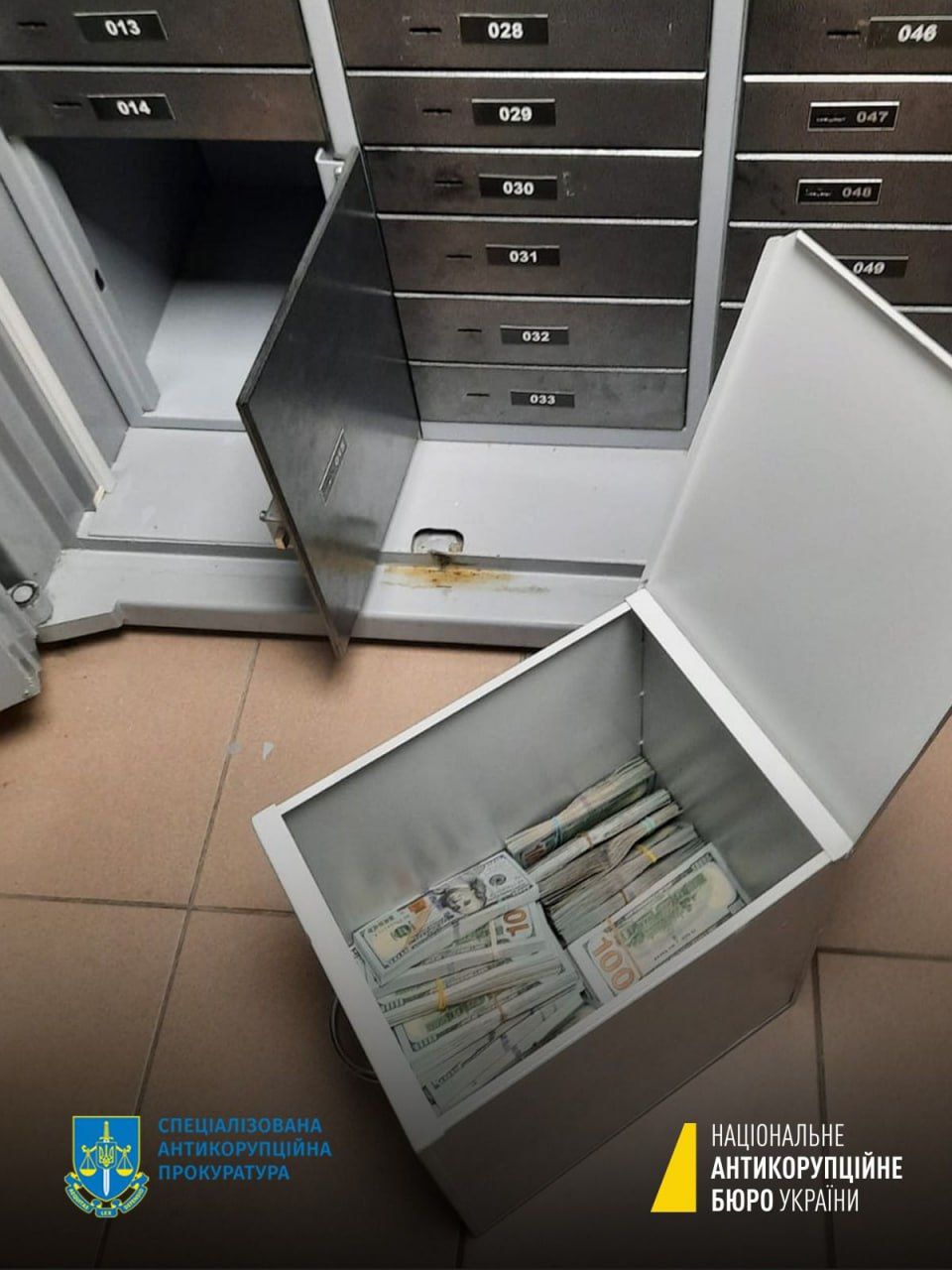
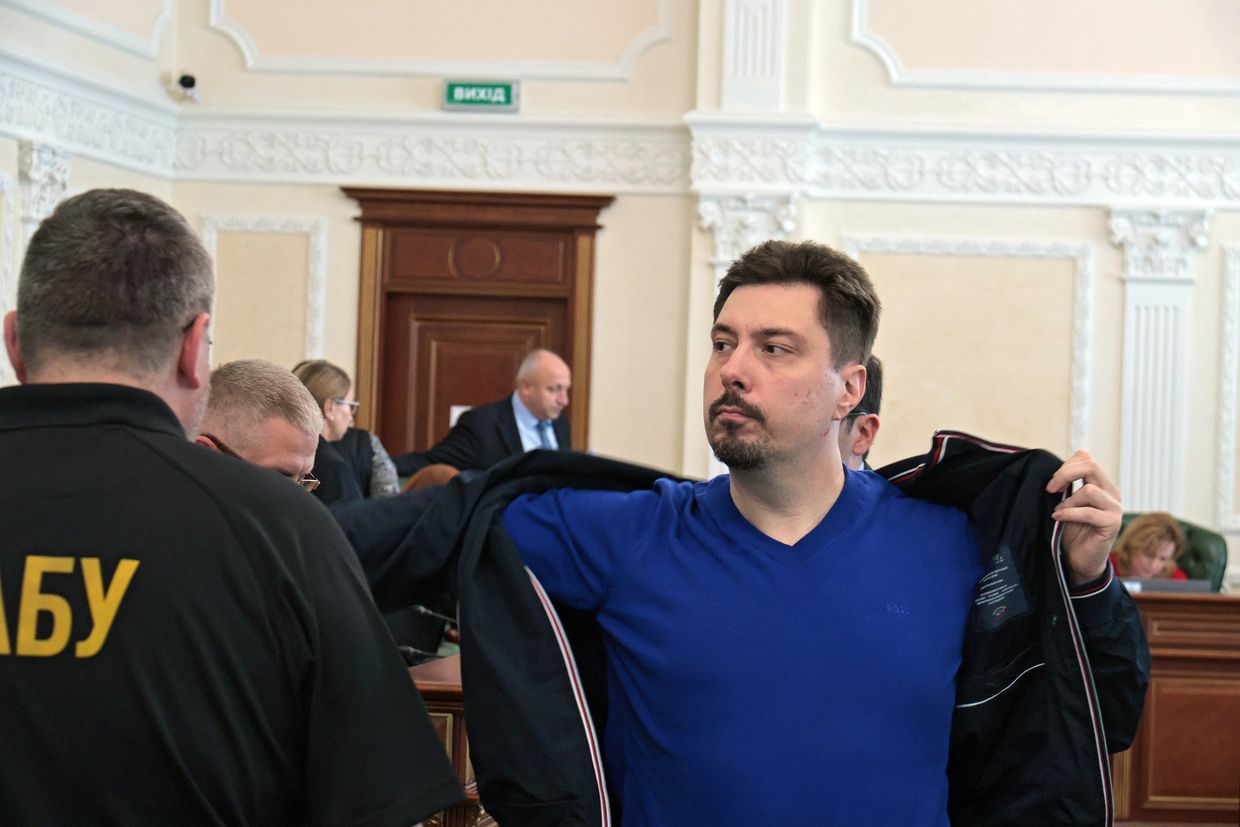
Tytych argued that the High Council of Justice's problems stem from the controversial way in which it was appointed in 2022.
At that time, a selection panel including Ukrainian and foreign experts approved several controversial and tainted candidates for High Council of Justice jobs. The panel also banned broadcasts of its interviews with candidates, citing alleged security risks due to the ongoing Russian invasion.
The panel also vetoed the candidacy of Larysa Golnyk, Ukraine’s most famous whistleblower judge who has become a symbol of integrity for civil society watchdogs.
Ukraine’s leading civic watchdogs issued a statement, saying that the panel had undermined trust in the process by taking these steps, and that the decisions may lead to “catastrophic results” for judicial reform.
